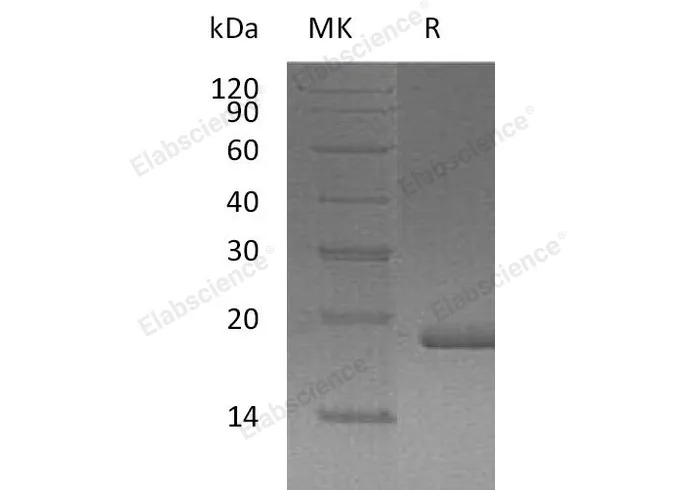Recombinant Human FGF-10/FGF10 Protein
CAT:
763-PKSH032432-02
Size:
10 µg
Price:
Ask
- Availability: 24/48H Stock Items & 2 to 6 Weeks non Stock Items.
- Dry Ice Shipment: No




Recombinant Human FGF-10/FGF10 Protein
- Background: Fibroblast growth factor 10 (FGF-10, KGF-2), is a member of the fibroblast growth factor (FGF) family that includes FGF-3, -7, and -22. KGF-2 is secreted by mesenchymal cells and associates with extracellular FGF-BP. It preferentially binds and activates epithelial cell FGFR2 and interacts more weakly with FGFR1. It plays an important role in the regulation of embryonic development, cell proliferation and cell differentiation. It exhibits mitogenic activity for keratinizing epidermal cells, but essentially no activity for fibroblasts, which is similar to the biological activity of FGF7. FGF10 is required for normal branching morphogenesis. Defects in FGF10 are the cause of autosomal dominant aplasia of lacrimal and salivary glands (ALSG). ALSG has variable expressivity, and affected individuals may have aplasia or hypoplasia of the lacrimal, parotid, submandibular and sublingual glands and absence of the lacrimal puncta. The disorder is characterized by irritable eyes, recurrent eye infections, epiphora (constant tearing) and xerostomia (dryness of the mouth), which increases the risk of dental erosion, dental caries, periodontal disease and oral infections.
- Abbreviation: FGF-10;FGF10
- Synonyms: FGF-10, FGF10, Fibroblast growth factor 10, KGF-2, KGF2, Keratinocyte growth factor 2
- CAS Number: 9000-83-3
- UniProt: O15520
- Accession Number: O15520
- Host: E. coli
- Origin Species: Human
- Tag: None
- Sequence: Gln38-Ser208
- Field of Research: Signal Transduction;Cardiovascular;Cancer;Stem cells
- Purity: > 95 % as determined by reducing SDS-PAGE.
- Bioactivity: Not validated for activity
- Reconstitution: Please refer to the printed manual for detailed information.
- Molecular Weight: 19-22 kDa
- Shipping Conditions: This product is provided as lyophilized powder which is shipped with ice packs.
- Storage Conditions: Generally, lyophilized proteins are stable for up to 12 months when stored at -20 to -80°C. Reconstituted protein solution can be stored at 4-8°C for 2-7 days. Aliquots of reconstituted samples are stable at < -20°C for 3 months.
